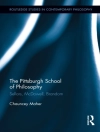What is grammar? Why does it exist? What difference, if any, does it make to the organization of meaning? This book seeks to give principled answers to these questions. Its topic is ‘universal’ grammar, in the sense that grammar is universal to human populations. But while modern generative grammar stands in the tradition of ‘Cartesian linguistics’ as emerging in the 17th century, this book re-addresses the question of the grammatical in a broader historical frame, taking inspiration from Modistic and Ancient Indian philosopher-linguists to formulate a different and ‘Un-Cartesian’ programme in linguistic theory. Its core claim is that the organization of the grammar is not distinct from the organization of human thought. This sapiens-specific mode of thought isuniquely propositional: grammar, therefore, organizes propositional forms of reference and makes knowledge possible. Such a claim has explanatory power as well: the grammaticalization of the hominin brain is critical to the emergence of our mind and our speciation. A thoroughly interdisciplinary endeavour, the book seeks to systematically integrate the philosophy of language and linguistic theory. It casts a fresh look at core issues that any philosophy of (universal) grammar will need to address, such as the distinction between lexical and grammatical meaning, the significance of part of speech distinctions, the grammar of reference and deixis, the relation between language and reality, and the dimensions of cross-linguistic and bio-linguistic variation.
Wolfram Hinzen & Michelle Sheehan
Philosophy of Universal Grammar [PDF ebook]
Philosophy of Universal Grammar [PDF ebook]
Buy this ebook and get 1 more FREE!
Language English ● Format PDF ● Pages 400 ● ISBN 9780191626425 ● Publisher OUP Oxford ● Published 2013 ● Downloadable 6 times ● Currency EUR ● ID 2814474 ● Copy protection Adobe DRM
Requires a DRM capable ebook reader












